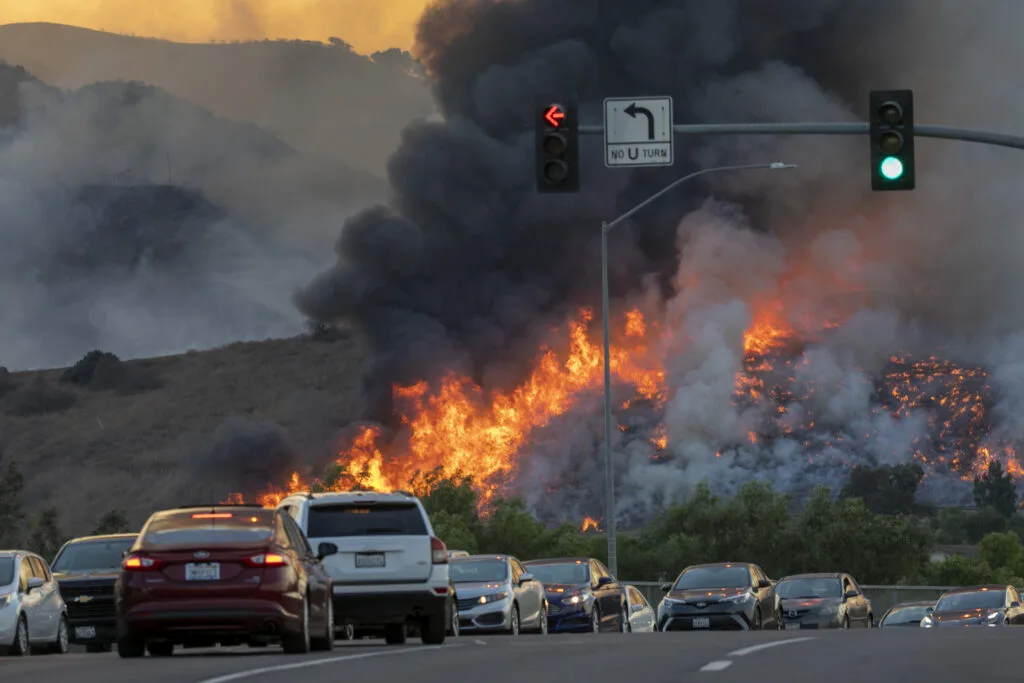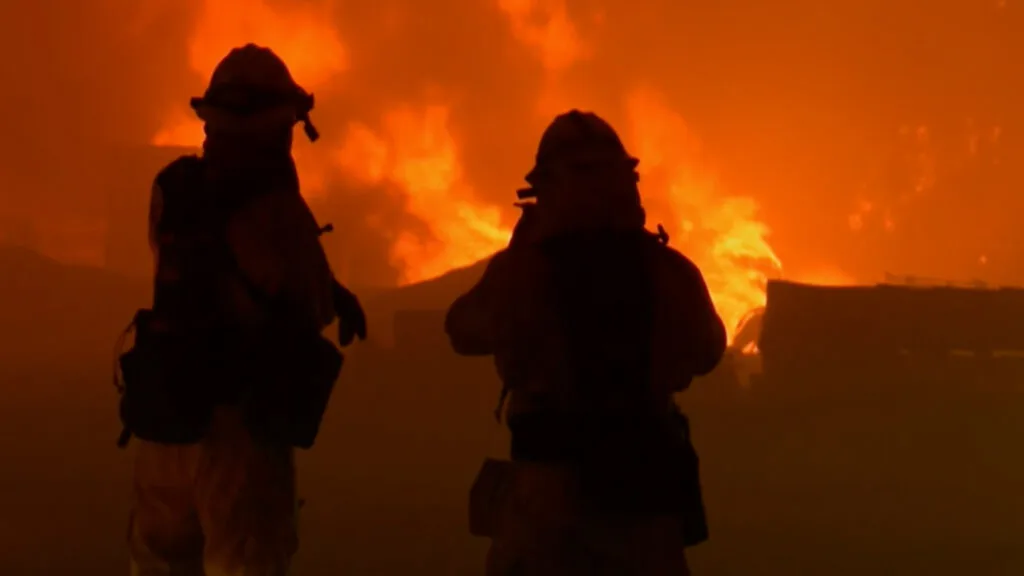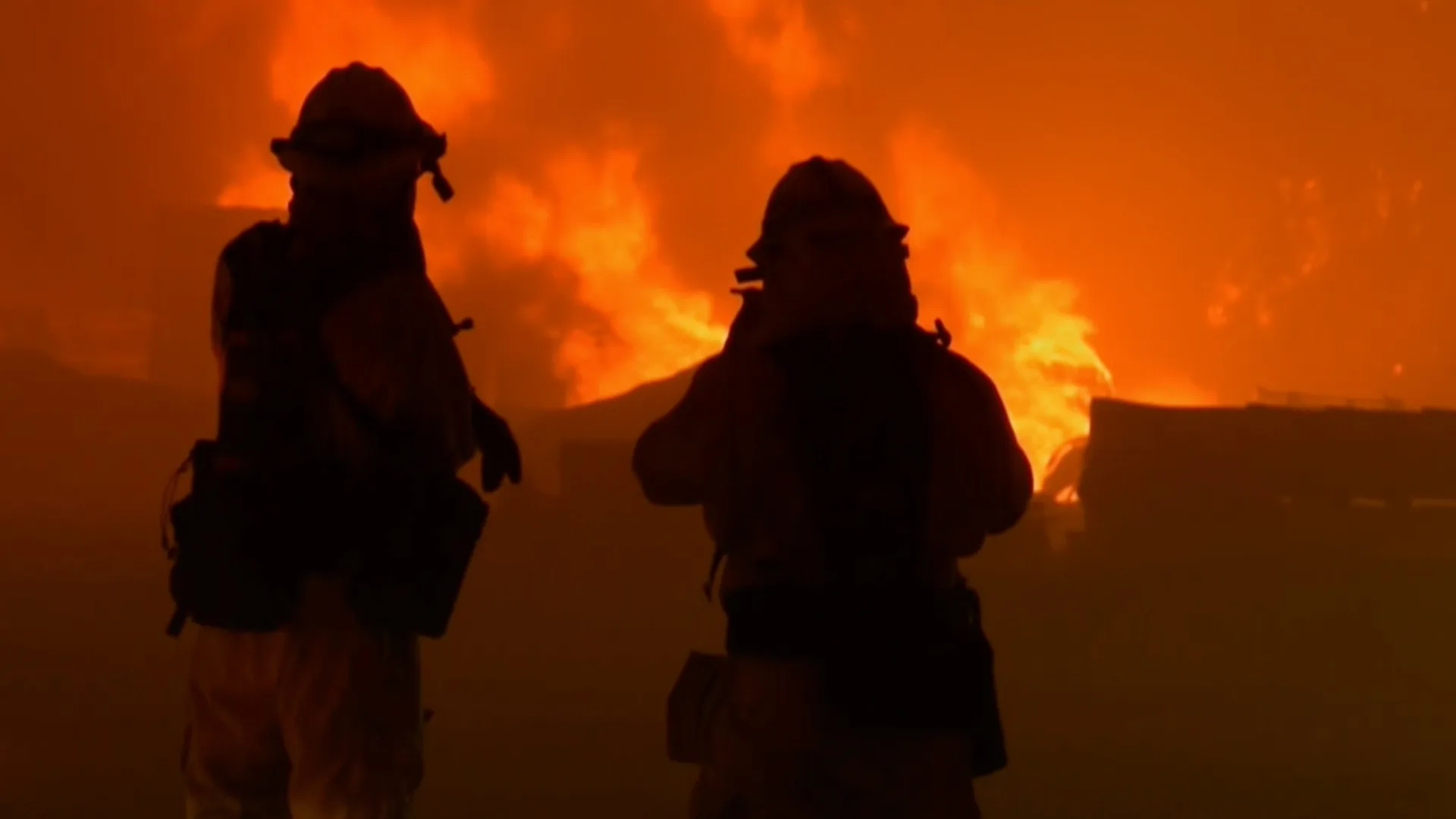As the U.S. Leaves the Paris Accord, Revisit FRONTLINE’s Recent Climate Reporting

November 4, 2020
Share
The United States’ withdrawal from the Paris climate accord, a historic Obama-era agreement among nearly 200 nations aimed at combating climate change, became official on Wednesday, Nov. 4.
The pullout followed a process set in motion by President Donald Trump in June of 2017, when he vowed to withdraw from the agreement, calling it “draconian” and arguing it was not made on good terms for American taxpayers. Under the non-binding agreement reached in 2015 by world leaders and activated in 2016, the U.S. would have voluntarily reduced its carbon emissions on a schedule American officials set.
Joe Biden, Barack Obama’s former vice president and the 2020 Democratic candidate for president, has pledged that the U.S. will re-join the agreement if he is elected. As of 1:30 p.m. E.S.T on Nov. 4, election results were not yet final.
The withdrawal came as America grapples with intense wildfire and hurricane seasons, to which scientists say climate change is contributing.
In recent years, there has been a cascade of dire warnings about the current and impending consequences of climate change. A late-2019 report from the World Meteorological Association, a UN agency focused on weather and climate, found the human-driven increase in temperatures over the past decade has brought with it progressively more catastrophic impacts on human health and society — including increased world hunger and “extreme” weather events that have displaced millions of people. Around the same time, a statement signed by 11,000 scientists declared that the world “is facing a climate emergency.”
The previous year, a report from the Intergovernmental Panel on Climate Change (IPCC) warned that, from irreversible damage to coral reefs to serious coastal flooding, climate change could have severe effects across the world as early as 2030 — and an even more catastrophic impact soon after — unless there are “rapid, far-reaching and unprecedented changes in all aspects of society.”
For more on the threat and impacts of climate change, revisit FRONTLINE’s reporting in the five stories below — an introduction to our broad coverage of the topic.
1. The Last Generation (2018), an award-winning, interactive look at children living in an island nation threatened by rising seas

2. Fire in Paradise (2019), a film on California’s deadliest-ever wildfire that examines the role of climate change
As it unspools the events surrounding the 2018 Camp Fire — the deadliest blaze in California state history — this documentary also examines how climate change is making wildfires bigger and more frequent. “This is not a static problem. We have a problem that’s going to grow worse inevitably over the next several decades,” Michael Wara, director of the Climate and Energy Policy Program at Stanford University’s Woods Institute for the Environment, said in the film. “I don’t think anyone feels prepared for the kind of catastrophe that is possible now.”
3. War on the EPA (2017), a documentary examining how the anti-regulatory and anti-climate change science movements in America gained power
Since President Trump took office, the Environmental Protection Agency (EPA) has sought to delay or roll back environmental regulations of coal-fired and natural-gas power plants, oil and gas wells, landfills and vehicle emissions and more. This documentary examines how combating perceived federal overreach by the EPA became a popular conservative cause and how now-former EPA head Scott Pruitt went from fighting the agency to running it. The film also unpacks the events that led up to the Trump administration’s withdrawal from the Paris climate agreement.
4. Greenland Melting (2018), a 360-degree documentary set amid Greenland’s melting glaciers
For centuries, the enormous ice sheet covering the Arctic island of Greenland has been relatively stable. But over roughly the past decade and a half, Greenland’s glaciers have been melting much faster than expected. Why — and what does it mean for the rest of the world? Follow a team of NASA scientists as they try to find out, in this 360-degree documentary from FRONTLINE, NOVA, Emblematic Group, X-Rez Studio and Realtra.
5. Climate Change in the Classroom (2017-18), a series of stories on the battle over what kids learn about climate change
In 2017, FRONTLINE and The GroundTruth Project broke the story on the Heartland Institute, a libertarian think tank that rejects the scientific consensus on climate change, seeking to influence some 200,000 K-12 public school teachers. Our reporting found that the institute was mailing educators textbooks, DVDs, and other materials rejecting the human role in climate change and arguing instead that rising temperatures have been caused primarily by natural phenomena. Learn about the group’s effort — and the responses and reactions it spurred – in a series of stories by reporter Katie Worth.

Related Documentaries
Latest Documentaries
Related Stories
Related Stories
Explore
Policies
Teacher Center
Funding for FRONTLINE is provided through the support of PBS viewers and by the Corporation for Public Broadcasting, with major support from Ford Foundation. Additional funding is provided the Abrams Foundation, Park Foundation, John D. and Catherine T. MacArthur Foundation, Heising-Simons Foundation, and the FRONTLINE Trust, with major support from Jon and Jo Ann Hagler on behalf of the Jon L. Hagler Foundation, and additional support from Koo and Patricia Yuen. FRONTLINE is a registered trademark of WGBH Educational Foundation. Web Site Copyright ©1995-2025 WGBH Educational Foundation. PBS is a 501(c)(3) not-for-profit organization.






















